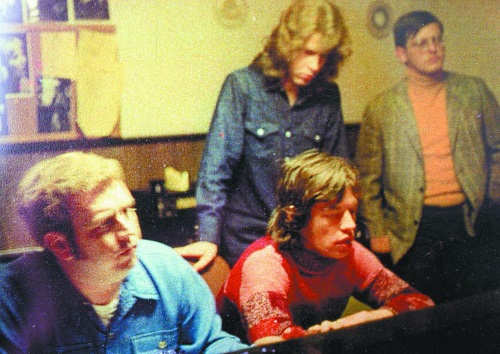

It’s almost impossible for an artist to avoid producing work that isn’t going to age well to the public. McCartney and Wonder are two legendary figures in music, yet they prove that most artists are going to hit bumps in the road of their musical journey. The song is about racial harmony, yet a lot of fans have a hard time taking this cheese-fest seriously. A well-meaning yet prominent example of a song aging poorly is “Ebony & Ivory” by Paul McCartney and Stevie Wonder. Sometimes it’s a change in musical direction such as when an artist dabbles in a different genre of music. It can be a love song an artist directs to someone they care about and then the romance ultimately ends on a sour note. Songs can age poorly for a variety of reasons.

The message can still be applied to last year’s George Floyd protests. The song details an African American’s plight who feels overwhelmed with adversity he faces from racial injustice yet feels optimistic about the future. Sam Cooke’s 1964 song “A Change is Gonna Come” is a perfect example of music that has aged well. There are songs that stand the test of time because their message still resonates with today’s social climate. While it shouldn’t aim to purely shock audiences, it should get people talking. Music is art and art is meant to break social or cultural boundaries. Whether a song has a good meaning or not, listeners should be able to take away something from the lyrics or melody. Musicians are in a tough spot because great music is supposed to tell a story.

The song faced major backlash for the lyrics and music video, but many people pushed aside the meaning because they liked the beat. “Blurred Lines” is not even a decade old, yet the message behind it aged as well as milk. He said he is more aware of the content he creates now and is embarrassed by a lot of work he produced early in his career. In a 2019 interview with GQ, Pharrell Williams said that the controversy surrounding the song “Blurred Lines” helped him open his mind to the dangers of sexism. “Brown Sugar” isn’t unique to the problem of artists penning songs they later came to regret. Though “Brown Sugar” was made in the early ’70s, they wrote the song during a time when fans and casual audiences took offense for different reasons. Gone were the days of singing about holding someone’s hand - being someone’s dog was in. Music was growing more sexual in tone as well. A lot of songs were aimed at protesting against the government because of decisions they made domestically and internationally, à la the Vietnam War. Bands were interested in experimenting with their music and pushing social boundaries. The political climate of the ’60s affected what played on the radio. charts in the early half of the ’60s before shifting to pop and heavier rock later that decade. As consumers of media, we must be aware of how songs are shaped by the cultural movements of the time they’re created in.ĭoo-wop and rock and roll largely dominated U.S. Though I don’t think we should be canceling the band for their decision to produce the track, I do support their decision to leave the record in the past.

“I would never write the song now,” Jagger said in a 1995 interview with Rolling Stone magazine.Īfter facing criticism for profiting off those themes, the band decided to remove the song from the playlist, though Jagger stated they might put it back in one day. However, lead singer Mick Jagger showed more hesitation. Lead guitarist Keith Richards defended the track saying it depicted the horrors of slavery and was confused why fans wanted to “bury” the song. “Brown Sugar” has long since endured a string of controversy around its lyrics, which include references to slavery, sadomasochism and the over-sexualization of black women. 13 they would be dropping their 1971 hit “ Brown Sugar ” from their 2021 U.S. Iconic rock band The Rolling Stones announced on Oct.


 0 kommentar(er)
0 kommentar(er)
